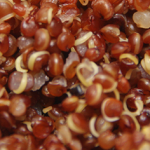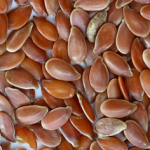Tomatoes
Vitamin B
Tomatoes include healthy amounts of several B vitamins, specifically B1 (thiamine), B2 (riboflavin) and B6 (pyridoxine). These vitamins assist metabolic processes in regards to fat and carbohydrates. As a result, they can help to stabilize levels of glucose in the blood. Thiamine has additional benefits for the kidneys, as they can reduce excess proteinuria (loss of protein through urination), which is a factor in kidney damage. Riboflavin can help in general diabetes prevention and management. It can also help in the mitigation of lactic acidosis, a kidney condition (to which diabetics are more prone) that can lead to more harmful diseases. Pyridoxine has similar effects to those of thiamine, aiding metabolism and regulation of blood sugar. All of these vitamins can assist the promotion of cardiovascular health.
Vitamin K
Trial studies regarding the effects of vitamin K on diabetes patients have shown positive results in the improvement of insulin’s effectiveness on the body’s metabolic functions. Specifically, vitamin K helps to metabolize certain hormones that help to moderate blood sugar levels, thereby lowering insulin resistance. Studies conducted over periods of a few weeks at a time have shown that the longer a person is exposed to vitamin K, the greater these effects will be.
Chromium
Chromium helps to regulate blood sugar levels while raising the effectiveness of insulin. It does this by allowing glucose molecules in the bloodstream to be metabolized more effectively. Failure of the body to metabolize sugar molecules results in the storage of those molecules as body fat, which can create weight gain and lead to the onset of diabetes. Consumption of foods containing high levels of chromium is therefore beneficial in both the management and the prevention of diabetes. This effect is increased when chromium is consumed in combination with niacin, another organic compound present in tomatoes.
Manganese
Manganese promotes the increase of insulin production by the pancreas. Not only does it help to raise the effectiveness of insulin, but it helps to increase its production levels as well. This increases the body’s ability to handle blood sugar spikes as well as generally high glucose levels, which benefits the metabolism of diabetics and helps to manage or prevent symptoms of adult-onset diabetes. Many diabetes lack natural quantities of manganese, so the consumption of foods containing this mineral is highly valuable in their treatment.Iron
Iron promotes healthy blood, which is integral to the maintenance of circulatory and cardiovascular health. The oxidization of iron in the bloodstream can help to improve the metabolism of foreign bodies which must be cleansed. Although this sounds entirely positive, there are some cautions to be considered in the consumption of iron-rich foods. Though iron can help to cleanse the blood, an excess metabolism of glucose can actually lead to unhealthy blood sugar levels. In addition, iron’s role in the metabolic process can unintentionally create, rather than destroy, free radicals that affect the bloodstream. Therefore, while iron can be a vital tool in creating healthy blood, overconsumption of iron-rich foods may worsen (or even cause) diabetes. As such, tomatoes must be eaten in slight moderation.
Lycopene
Lycopene is associated with red foods, so it is no surprise that tomatoes are fairly rich in this nutrient. It can help in the management of diabetic symptoms such as high blood sugar and insulin resistance. It can also help to improve vision and lower the risk of cardiovascular diseases associated with bad cases of type 2 diabetes. Some evidence has shown that it may also help to prevent pancreatic cancer and colon cancer, two major cancer types seen in diabetes patients.

























